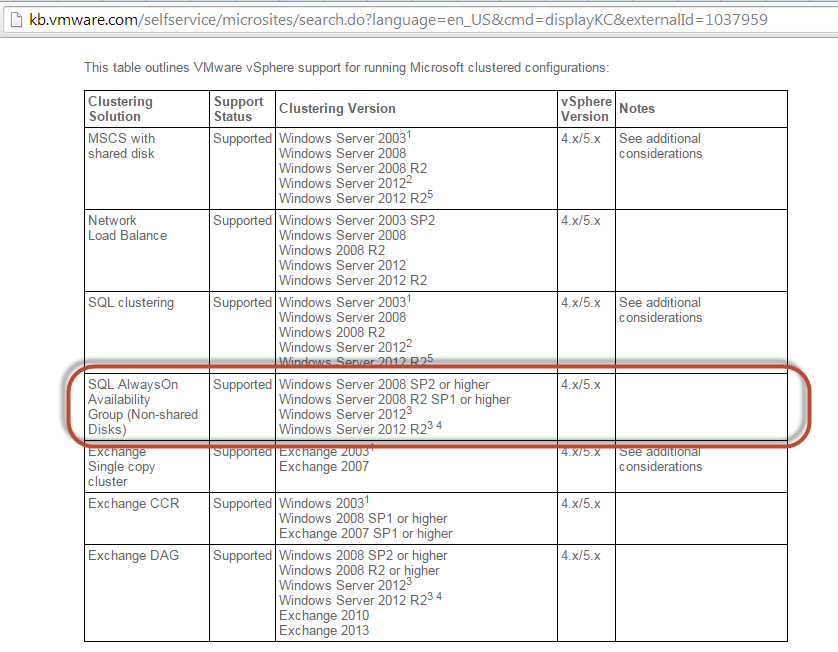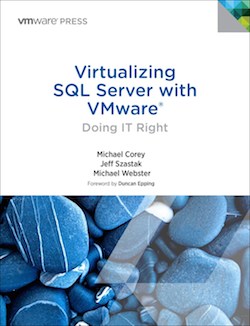QUESTION: Is MS SQL supported when running in a vSphere environment where the SQL databases/logs are in a VMDK on an NFS datastore?
Short answer: YES!
Note: I have confirmed this with the Principal Program Manager for SAP, SQL & Azure Customer Programs.
Here are some important Microsoft Knowledge Base articles to confirm this statement.
1. Support policy for Microsoft SQL Server products that are running in a hardware virtualization environment
2. Support policy for Microsoft software that runs on non-Microsoft hardware virtualization software
It is important to note, no where in the above support policies is storage protocol even mentioned. To me this is a very smart move by the SQL team as the underlying storage protocol is abstracted from the VM, making it irrelevant.
The key requirements are:
a) The platform must be SVVP (Server Virtualization Validation Program) certified
VMware is SVVP certified, as is shown by on the SVVP Website.
b) The SQL Server product must be a supported version under its current Microsoft Support Lifecycle policy
For more information about Microsoft Support Lifecycle policies, visit the following Microsoft Support website: http://support.microsoft.com/?pr=lifecycle
c) Virtualization support per SQL features based on SQL Edition
This can be verified here under “Virtualization Support” and the below table is from this KB showing what is supported based on SQL edition.
Now in saying SQL is supported when running in a VMDK on NFS datastores, there are some limitations as discussed in SQL AlwaysOn Availability Group support in VMDKs on NFS Datastores.
In summary, old style SQL clustering requiring Shared disks which is not supported.
However SQL Always on Availability Groups (AAG) and SQL Mirroring are supported, which are the two configurations you should be considering these days.
I hope this helps clear up any confusion.
Now for the MS Exchange team to follow the lead of the SQL team!
See Virtualizing Exchange on vSphere with NFS backed storage for more details.





